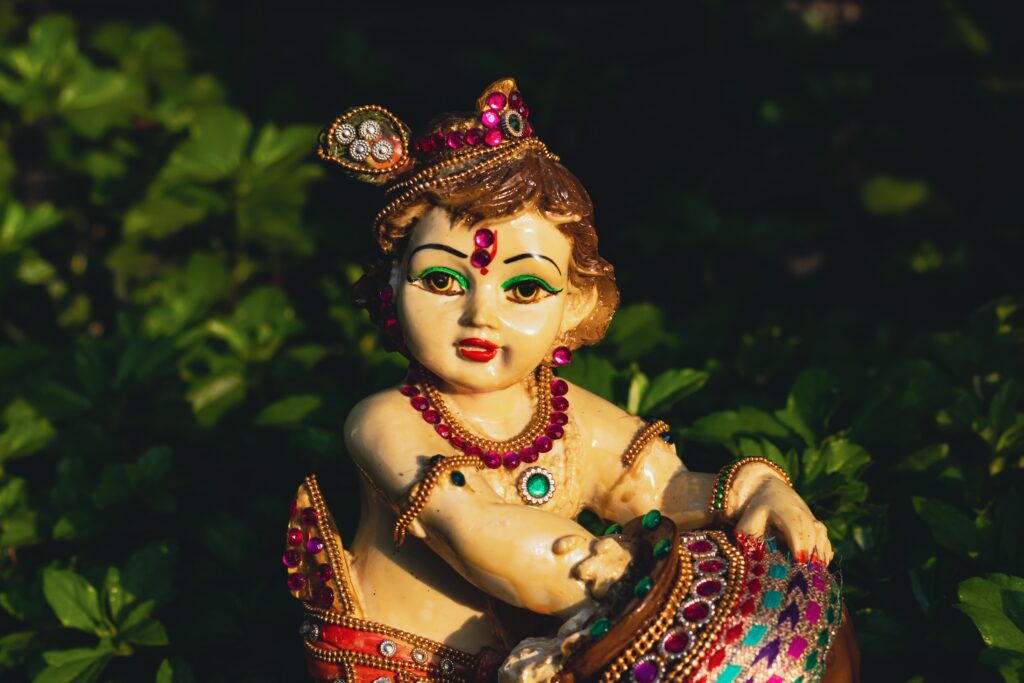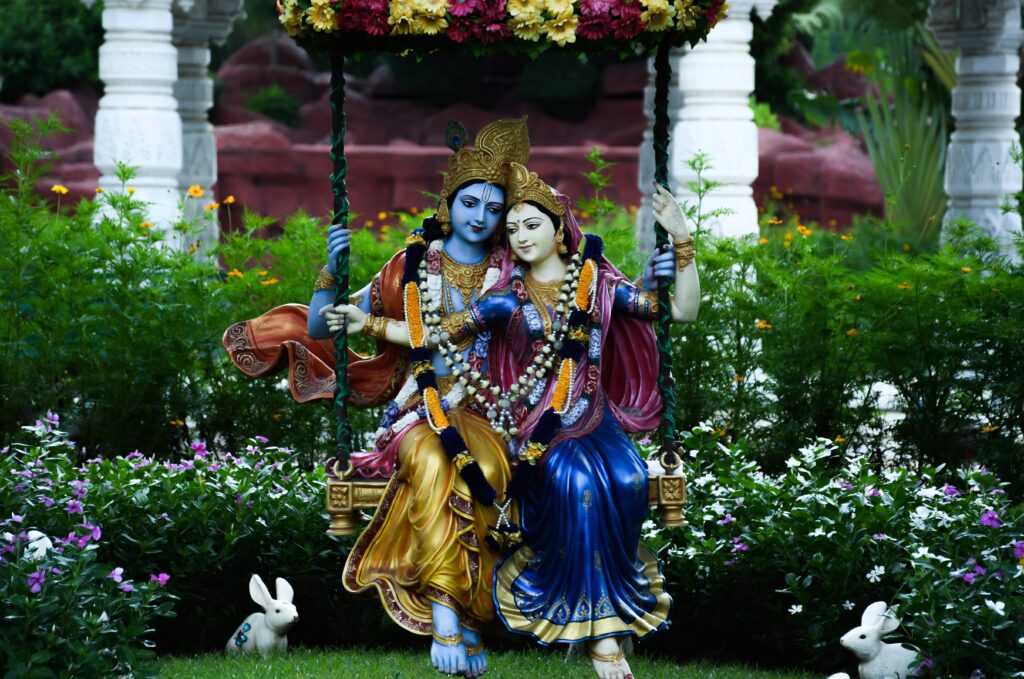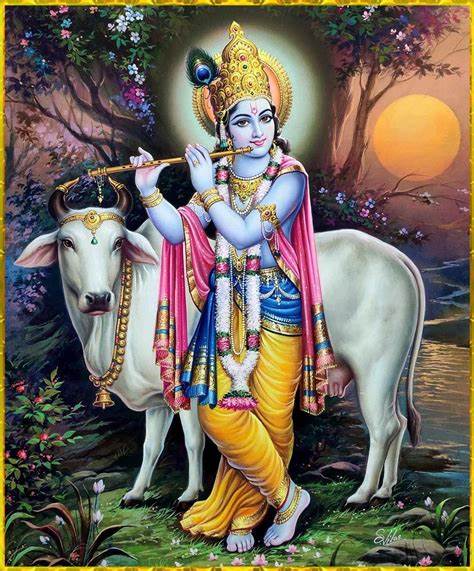Today, Hindus around the world are celebrating Krishna Janmashtami, the birth anniversary of Lord Krishna, one of the most popular and beloved deities in Hinduism. Krishna is revered as the eighth avatar of Vishnu, the supreme god in the Hindu pantheon. He is also known for his compassion, wisdom, love, and playfulness.
Krishna Janmashtami falls on the eighth day (ashtami) of the dark fortnight of the lunar month of Bhadrapada, which usually corresponds to August or September in the Gregorian calendar. This year, the festival is celebrated on September 6, 2023.
The Story of Krishna’s Birth
According to Hindu mythology, Krishna was born in a prison cell in the city of Mathura, where his parents Devaki and Vasudeva were imprisoned by Devaki’s evil brother Kamsa. Kamsa was a tyrannical king who had usurped the throne from his father and killed his six nephews. He was afraid of a prophecy that foretold his death at the hands of Devaki’s eighth son.
When Krishna was born, a divine voice instructed Vasudeva to take the baby across the river Yamuna and exchange him with the daughter of his cousin Nanda and his wife Yashoda in the village of Gokula. Vasudeva obeyed and miraculously escaped from the prison with the help of the gods. He reached Gokula safely and swapped Krishna with Nanda’s newborn daughter.

Meanwhile, Kamsa came to know about the birth of Devaki’s eighth child and rushed to kill him. He was shocked to see a baby girl in the cell and tried to smash her against a wall. However, the girl transformed into a goddess and warned Kamsa that his nemesis had already been born elsewhere and that he could not escape his fate. She then disappeared, leaving Kamsa terrified and furious.
Krishna grew up in Gokula as the son of Nanda and Yashoda, unaware of his true identity. He enjoyed a blissful childhood with his foster parents and his friends, especially his beloved Radha. He also performed many miraculous deeds, such as killing demons, lifting a mountain, stealing butter, and playing the flute.
The Celebrations of Krishna Janmashtami
Krishna Janmashtami is celebrated with great devotion and enthusiasm by Hindus all over the world. The festivities begin on the previous day with fasting, singing, dancing, and reciting stories and scriptures related to Krishna’s life. Temples and homes are decorated with flowers, lights, and rangoli (colorful patterns made on the floor). Images and idols of Krishna are bathed, adorned with clothes and jewelry, and placed in cradles or swings. Devotees offer prayers, sweets, fruits, and flowers to Krishna and rock his cradle as a sign of love and affection.
The main celebration takes place at midnight, which is believed to be the exact time of Krishna’s birth. Devotees chant “Hare Krishna” (a mantra invoking Krishna’s name) and “Jai Shri Krishna” (a salutation meaning “Victory to Lord Krishna”). They also blow conch shells, ring bells, and perform arti (a ritual of waving lamps) to welcome Krishna. Fireworks and crackers are also burst to mark the joyous occasion.
One of the most popular traditions associated with Krishna Janmashtami is Dahi Handi (literally “yogurt pot”), which is observed on the next day in some parts of India. It involves forming human pyramids to reach and break earthen pots filled with yogurt that are hung high above the ground. This is inspired by Krishna’s childhood prank of stealing butter from earthen pots by climbing on his friends’ shoulders. The participants are called Govindas (another name for Krishna) and they are cheered by spectators who sing and dance along.
Another tradition is Raas Lila (literally “dance drama”), which is a theatrical performance depicting Krishna’s love for Radha and his playful interactions with the gopis (cowherd girls). Raas Lila is especially popular in Vrindavan, Mathura, and other places in northern India where Krishna spent his early years. The performers wear colorful costumes and jewelry and enact scenes from Krishna’s life with music and dance.

Krishna Janmashtami is not only a religious festival but also a cultural one that celebrates the spirit of love, joy, and devotion that Krishna embodies. It is a time to remember his teachings in the Bhagavad Gita (a sacred Hindu scripture), such as performing one’s duty without attachment to the results, surrendering oneself to God’s will, and cultivating detachment from worldly pleasures. It is also a time to express gratitude for his blessings and protection in one’s life.
Freelance Writer



